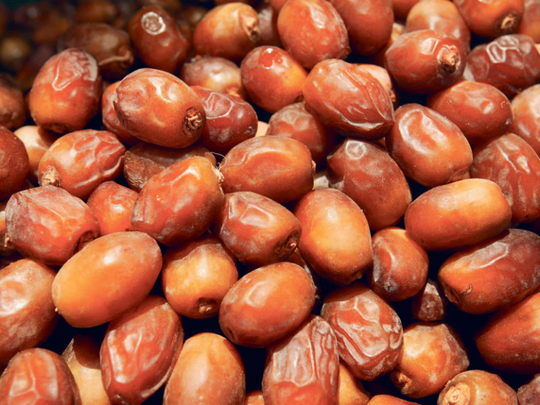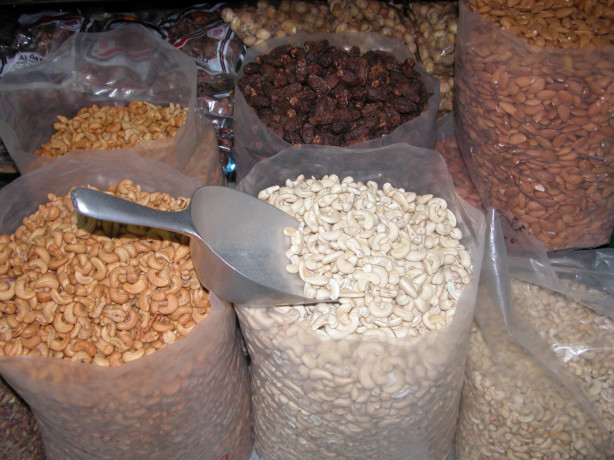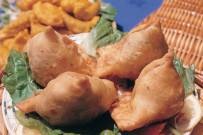
Everyone knows they should eat healthy during Ramadan. But few end up doing it and fewer still know what foods are good for them.
Lovely Ranganath, senior nutritionist at Healthtrendz, the healthy meal delivery initiative of Dubai World Trade Centre, says: “Quite a few people fall off the healthy eating wagon during Ramadan when the focus is on being together with family and friends and sharing meals. It’s a month when women display their cooking abilities. People tend to eat more than they should. With the weather being hot and humid, they prefer to stay indoors, which adds to their health issues.”
She recommends two major dietary no-nos:
1. Spicy foods as the stomach lining is sensitive post-fasting. Subjecting it to spicy food while breaking the fast can cause gas and heartburn.
2. Fried foods (read kibbeh, samosa, spring rolls, fritters and pakodas) as these are ‘empty’ calories. These foods are loaded with fat which the liver cannot process, so they are stored away as fatty tissue. They take a toll on the digestive tract and cause acidity.
Sleep well
“Waking up for suhoor becomes difficult as the digestion of fried foods interferes with our sleep cycle. The body needs to put in more effort to break down the fats which is a long process. Lack of proper sleep is also one of the reasons people gain weight as this interferes with hormonal balance,” says Ranganath, adding that fried items that are readymade and packaged are far worse as their sodium content is higher.
According to her, most people don’t drink enough water which causes water retention to already dehydrated bodies resulting in a bloated and uncomfortable feeling after iftar.
“I would think using air fryers are a great alternative where one wins the battle between taste and health.”
Best foods for Ramadan
Fresh fruits They are a definite yes as they are a great way to replenish electrolytes lost through the day during long hours of fasting. By the end of the fast, most people would have low blood sugar levels and fresh fruits provide complex carbohydrates and fibre to help in a gradual rise of glucose levels and improved digestion. Sprinkling cinnamon powder also helps.
Dates An absolute must as they are high in vitamin A, B6, potassium, natural sodium, iron and magnesium. A fasting person’s body has low reserves of these nutrients which dates will help replenish. The natural sugar in dates will give one the instant energy needed for evening prayers. The best part about having dates is that it also works as a mild laxative and eases constipation, which is quite common due to a sudden change in lifestyle during Ramadan.
Raw nuts They contain good fats which help release the sugar in dates even more slowly, keeping one feeling full up and in control, without the need to binge.
Meat, chicken, fish They should be part of a healthy iftar meal. The protein content helps one feel fuller faster and for longer. One major issue most people face is losing muscle tone during Ramadan due to reduced muscle mass. Having good portions of beef, lamb, chicken or fish mostly as grills, kebabs, etc are great to ensure muscle loss does not happen.
Breads An integral part of the diet but it is advisable to keep off white processed breads as they support a quick rise and fall in sugar levels making one hungry for more bread.
Lentils and beans Most under-used in iftar menus but mixed bean salad, lentil soups etc are recommended.
Fresh vegetables Low in calories, high in fibre, they give the extra dose of nutrients and aid digestion and sleep.
Water A litre of lemon water is good along with one-two litres of regular water. Lemon flavoured water has a positive impact on the liver, provides sufficient Vitamin C and hydrates the muscles, making one feel less tired and lethargic. Drinking too much tea will increase urine output and inevitably cause the loss of valuable mineral salts. Avoid caffeinated drinks such as coke, coffee or tea four to five days before Ramadan and gradually reduce the intake of these drinks since a sudden decrease will result in headaches, mood swings and irritability.














